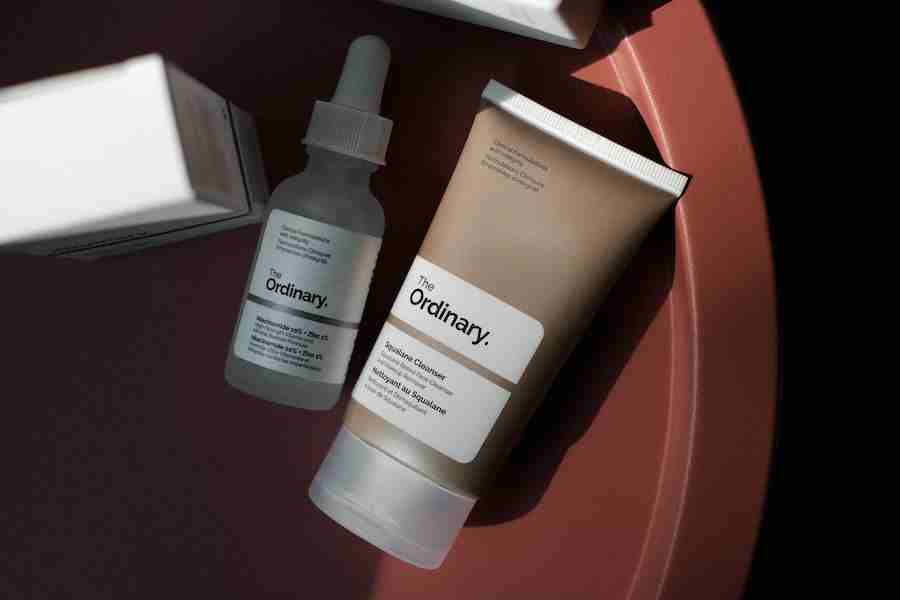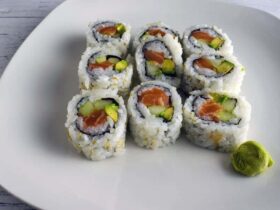When it comes to the health and well-being of our little ones, proper nutrition plays a vital role. As parents and caregivers, we strive to provide our children with the best possible diet to support their growth and development. However, as we navigate the complex world of food and beverages, questions arise regarding what is appropriate for our children at different ages. One such query that often arises is whether a 2-year-old can drink Body Armor, a popular sports drink known for its hydration benefits. In this article, we will explore the topic in-depth to shed light on whether or not Body Armor is suitable for toddlers and what factors need to be considered when making such decisions.
Can A 2 Year Old Drink Body Armor?
No, it is generally not recommended for a 2-year-old to drink Body Armor sports drinks. While these beverages may offer hydration benefits for adults and athletes, they are not specifically designed for young children. Toddlers have different nutritional needs and sensitivities compared to adults, and their fluid requirements can typically be met through water, breast milk, or formula. Body Armor sports drinks often contain high amounts of sugar, which can be detrimental to a child’s health and contribute to issues such as tooth decay and obesity. It is crucial to consult with a pediatrician or healthcare professional for appropriate hydration options and to ensure that your child’s nutritional needs are met through a balanced diet suitable for their age.
Overview Of Body Armor Sports Drinks
Body Armor sports drinks are a popular line of beverages that are marketed as hydration and performance-enhancing drinks. These drinks are designed to replenish electrolytes and provide a source of hydration for individuals engaged in physical activities, such as athletes and fitness enthusiasts. Body Armor offers a range of flavors and formulations, claiming to provide a combination of essential electrolytes, vitamins, and natural ingredients.
The composition of Body Armor sports drinks typically includes a blend of electrolytes, such as sodium, potassium, and magnesium, which help to maintain fluid balance and support muscle function. These beverages often contain vitamins, such as B vitamins and antioxidants like vitamins C and E, which are purported to promote energy production and provide antioxidant protection against free radicals.
One notable aspect of Body Armor drinks is their emphasis on being free from artificial colors and flavors. This can be appealing to individuals who prefer products with a more natural profile. However, it’s important to note that the exact ingredients and nutritional composition can vary depending on the specific flavor and formulation.
The brand positions itself as a healthier alternative to traditional sports drinks, emphasizing its use of natural ingredients and the absence of artificial additives. However, it is important to note that these drinks may still contain added sugars, so consumers should be mindful of their sugar intake.
Overall, Body Armor sports drinks are intended to provide hydration and replenish electrolytes for individuals engaged in physical activities. It is essential to read the labels and consider individual nutritional needs, particularly when it comes to children and those with specific dietary requirements or medical conditions. Consulting a healthcare professional or a registered dietitian is advised to determine the suitability of these beverages for personal consumption.
What Are The Ingredients And Nutritional Composition Of Body Armor?
The specific ingredients and nutritional composition of Body Armor sports drinks may vary slightly depending on the flavor and variant. However, here is a general overview of the typical ingredients and nutritional content you might find in Body Armor beverages:
Ingredients:
- Water: The primary base ingredient in the drink.
- Electrolytes: Common electrolytes found in Body Armor drinks include sodium, potassium, and magnesium.
- Vitamins: Body Armor often includes vitamins such as B vitamins (B3, B5, B6, B9, B12), vitamin A, vitamin C, and vitamin E.
- Sweeteners: These drinks may contain a combination of natural sweeteners like cane sugar, coconut water, and fruit juices. Some variants may also use artificial sweeteners such as sucralose or stevia.
- Natural flavors: Body Armor sports drinks may use natural flavors to enhance taste.
- Natural colors: The brand promotes the use of natural colors derived from fruits and vegetables.
- Other ingredients: Depending on the specific variant, you may find additives like citric acid, fruit extracts, or preservatives.
Nutritional Composition:
- Calories: Body Armor sports drinks typically range from 70 to 150 calories per serving, depending on the flavor and formulation.
- Carbohydrates: These beverages contain carbohydrates, primarily in the form of sugar, ranging from 15 to 36 grams per serving.
- Electrolytes: The electrolyte content varies, but sodium, potassium, and magnesium are commonly included.
- Vitamins: Body Armor drinks often provide a range of vitamins, such as B vitamins, vitamin A, vitamin C, and vitamin E, typically in small amounts.
- Protein and Fat: Body Armor sports drinks generally contain little to no protein or fat.
It’s important to note that the exact nutritional values can differ between different flavors and product lines within the Body Armor range. It is recommended to check the specific nutritional information on the product label for accurate details regarding the particular Body Armor sports drink you are interested in.
The Expert Opinions And Recommendations
Expert opinions and recommendations regarding the consumption of Body Armor sports drinks, especially for young children, can provide valuable insights. While it’s crucial to consult with healthcare professionals and registered dietitians for personalized advice, here are some general viewpoints from experts:
American Academy of Pediatrics (AAP): The AAP recommends that children primarily obtain their hydration from water and, for infants, from breast milk or formula. They caution against giving sports drinks to children unless specifically advised by a pediatrician in cases of prolonged physical activity or excessive sweating.
Pediatricians: Many pediatricians express concerns about the consumption of sports drinks, including Body Armor, by young children. They highlight that sports drinks often contain added sugars, which can contribute to dental cavities, obesity, and poor dietary habits. Pediatricians generally recommend water as the primary source of hydration for children.
Nutritionists: Nutritionists often advocate for providing children with a balanced diet that includes nutrient-rich whole foods. They emphasize that sports drinks, including Body Armor, may not be necessary for children unless they are engaging in intense physical activity for extended periods or in specific situations where electrolyte replacement is required.
Registered Dietitians: Registered dietitians stress the importance of understanding individual nutritional needs and considering alternatives before giving sports drinks to children. They recommend evaluating hydration requirements based on activity levels, emphasizing water consumption, and incorporating natural sources of electrolytes and nutrients from whole foods.
Pediatricians and Nutritionists: Many pediatricians and nutritionists advise against giving sports drinks like Body Armor to toddlers. They suggest that young children usually do not engage in high-intensity physical activities that would require the electrolyte replenishment and hydration provided by these beverages. They emphasize that water, breast milk, or formula are typically sufficient to meet the hydration needs of toddlers.
Hydration Alternatives: Experts often recommend focusing on natural hydration options for young children. Encouraging regular water intake, providing a balanced diet with fruits and vegetables high in water content, and ensuring appropriate fluid intake during meals and snacks are considered important for maintaining proper hydration levels.
What Are The Potential Risks Of Giving Sports Drinks To Toddlers?
While sports drinks may seem like a convenient option for hydration, there are potential risks associated with giving these beverages to toddlers. Some of these risks include:
Excess Sugar Intake:
Sports drinks often contain high amounts of added sugars, which can contribute to tooth decay, obesity, and the development of unhealthy eating habits. Toddlers have lower calorie requirements compared to older children and adults, and excessive sugar consumption can displace nutrient-rich foods in their diet.
Electrolyte Imbalance:
While electrolytes are essential for maintaining fluid balance, excessive consumption of sports drinks can disrupt the delicate electrolyte balance in a toddler’s body. This is particularly true if the child is not engaged in prolonged, intense physical activity that warrants the need for electrolyte replenishment.
Caffeine Sensitivity:
Some sports drinks, especially those marketed towards adults, may contain caffeine. Toddlers are highly sensitive to caffeine and its stimulating effects. Introducing caffeine at an early age can disrupt their sleep patterns, lead to irritability, and negatively impact their overall well-being.
Allergic Reactions or Sensitivities:
Sports drinks often contain various ingredients, such as artificial additives, colorings, or preservatives, that can potentially trigger allergic reactions or sensitivities in toddlers. These reactions can range from mild to severe, and it’s important to be cautious and aware of any known allergies or sensitivities in your child.
Displacement of Nutrient-Rich Foods:
Offering sports drinks to toddlers instead of nutritious foods or beverages can displace essential nutrients from their diet. It is crucial for toddlers to receive a well-rounded diet that includes a variety of fruits, vegetables, whole grains, and lean proteins to support their growth and development.
Final Thoughts
In conclusion, the question of whether a 2-year-old can drink Body Armor sports drinks raises important considerations regarding the nutritional needs and potential risks for young children. While sports drinks may provide hydration benefits for adults and athletes, they are not typically recommended for toddlers.
The nutritional composition of Body Armor sports drinks, including high sugar content and the presence of additives, may pose risks to a child’s health. Excessive sugar intake can contribute to dental problems, obesity, and other health issues. Additionally, the electrolyte balance, caffeine content, and potential allergens in these drinks may have adverse effects on young children.
FAQ’s
When can kids drink BODYARMOR?
Kids can drink Body Armor sports drinks when they are older, typically during their teenage years or when they are engaged in prolonged vigorous physical activities lasting more than one hour. It is important to consult with a healthcare professional or registered dietitian to determine the appropriate age and circumstances for introducing sports drinks like Body Armor to children.
Is BODYARMOR a healthy drink?
Body Armor sports drinks may not be considered a universally healthy drink, especially for regular consumption. While they offer hydration benefits and contain electrolytes and vitamins, they often have high sugar content and may contain additives. It is important to be mindful of the nutritional composition and consult with a healthcare professional or registered dietitian to determine if Body Armor or other alternatives align with your specific health needs and goals.
How much caffeine is in BODYARMOR?
Most variants of Body Armor sports drinks do not contain caffeine. However, it’s important to check the specific product label for the flavor you are interested in, as some specialty or energy-focused versions may contain added caffeine.




















Leave a Reply